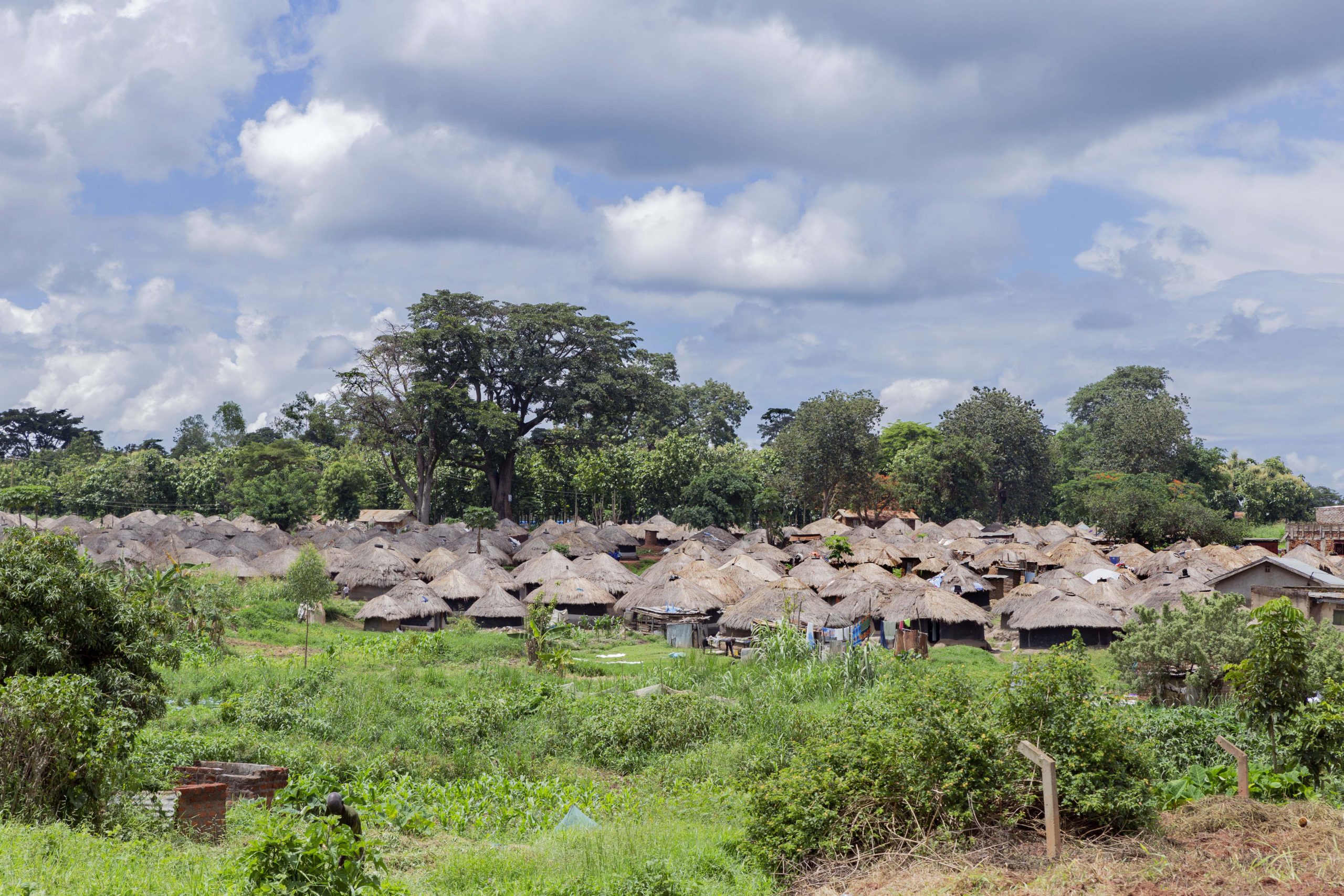By Miriam Watsemba
In 2006, the government of Uganda and the Lord’s Resistance Army (LRA) rebels signed a peace deal in Juba, South Sudan. This followed over two decades of unsuccessful guerrilla warfare by the elusive Joseph Kony to overthrow the government of President Yoweri Museveni.
To beef up their ranks, the protagonists in this civil war resorted to abducting civilians in northern Uganda’s Acholi and later Lango sub-regions and in the early 2000s, Teso in the eastern part of the country.This process of recruitment was riddled with physical, psychological and sexual abuse as well as looting and destruction of both private and public property. Consequently, many people in this region were displaced and forced to live in internally displaced people’s (IDPs) camps from where they could be guarded by the Uganda People’s Defence Forces (UPDF).
Fast forward, these same IDPs are now the communities to thousands of refugees fleeing civil war in South Sudan. In total bewilderment, they have observed the striking contrast in the privileges and support that has been extended to the current refugees, which they never received then.
“Our survival was left to the mercy of God,” says 71 year old Florence Atto who lives in a shared homestead with refugees in Kanyagoga, Gulu town. She is the current Local Council (LC1) chairperson of Kanyagoga-A sub-ward in Bar-dege Layibi division, Gulu town.
At the peak of the civil war, there were a number of safe spots within town where people would go and sleep to avoid being attacked and abducted by the LRA rebels. Some of these places, Atto recounts, included; Gulu Main Bus Park, Gulu Referral Hospital, St. Mary’s Hospital Lacor and St. Monica Girls’ Tailoring Center.
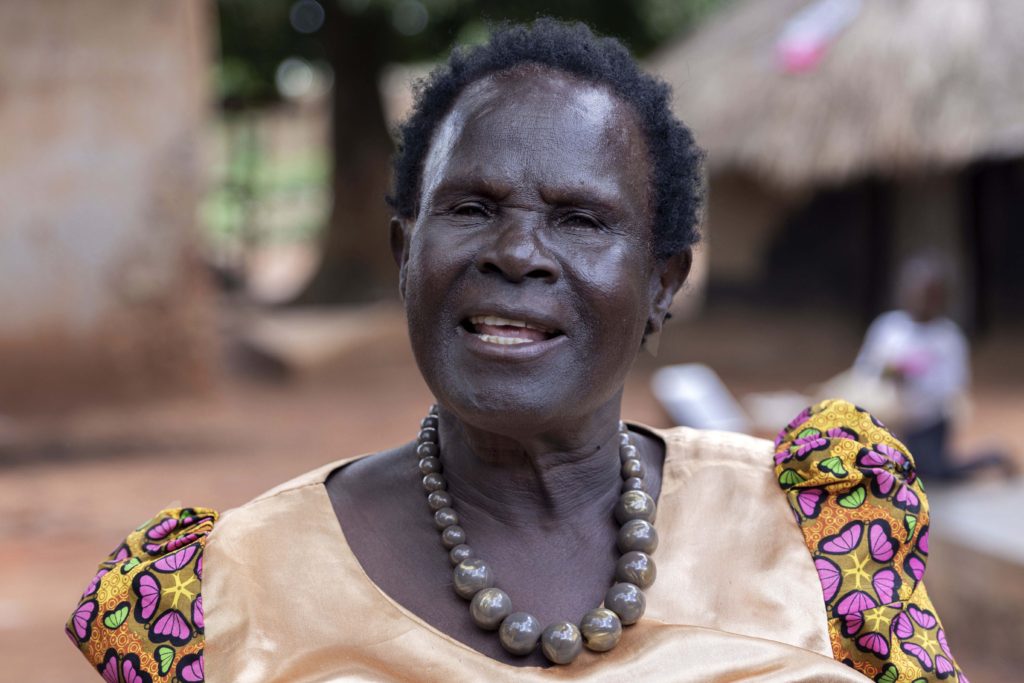
Florence Atto, 71, narrating her story in Kanyagoga A, Bar-dege layibi division, in Gulu town.
Atto fled her village in Lukome, Bwonga-tira sub-county in 1987. “The rebels burnt everything that we had and I left our village home to come to town where it was a bit safe. We lived in the IDP camp in Chope for about seven years,” she told Vox Populi in an interview. The war in northern Uganda started around 1987 after Museveni’s NRA shot the Uganda National Liberation Army’s junta led by General Tito Okello Lutwa who had overthrown Uganda’s founding leader, Apollo Milton Obote in 1985.
Atto says the LRA rebels came to her home in Lukome and burnt everything to ashes. Fortunately for her, she managed to escape to Gulu town for refuge with five of her children. She however recalls the sad death of her first born son whom she lost to the war. The conversation about Atto’s son flooded her eyes with tears in just a moment.
While in Gulu town, rebel activity continued to surge. This was 13 years after Atto had left the IDP camp and bought a small piece of land in Kanyagoga. She recollects, “At night, we always left our homes here in Kanyagoga and went to seek shelter at St. Monica Girls’ Tailoring Center which was run by the Verona Sisters under Gulu Archdiocese.’’ This was one of the few safe spots in Gulu town. There was a dungeon where the Catholic priest would hide people, when the rebels came.”
Atto currently resides in an area mostly occupied by former internally displaced people and refugees from South Sudan, who are all living together in shared homesteads within the community. Many of the refugees who came from South Sudan have now been accepted to live with former survivors of the LRA war. Atto says that the support and help being offered to refugees from South Sudan is different from support that survivors of the LRA war received when they were still in the camps
‘’ Our friends who fled the war from South Sudan are being supported and given multiple opportunities, unlike us. Our survival was left to the mercy of God,’ she retorts.
Statistics from the Office of the Prime Minister show that Uganda is hosting over one million refugees, the majority of whom are from South Sudan and the Democratic Republic of Congo.
Atto says majority of people who fled the LRA war like herself are currently surviving on hand-to- mouth basis and facing several challenges including post-traumatic stress disorder, poverty, and suicidal tendencies among others.
“We request government of Uganda to support and empower us with resources so that we can be able to pay for our children in school and also construct for us decent housing,” she pleads.
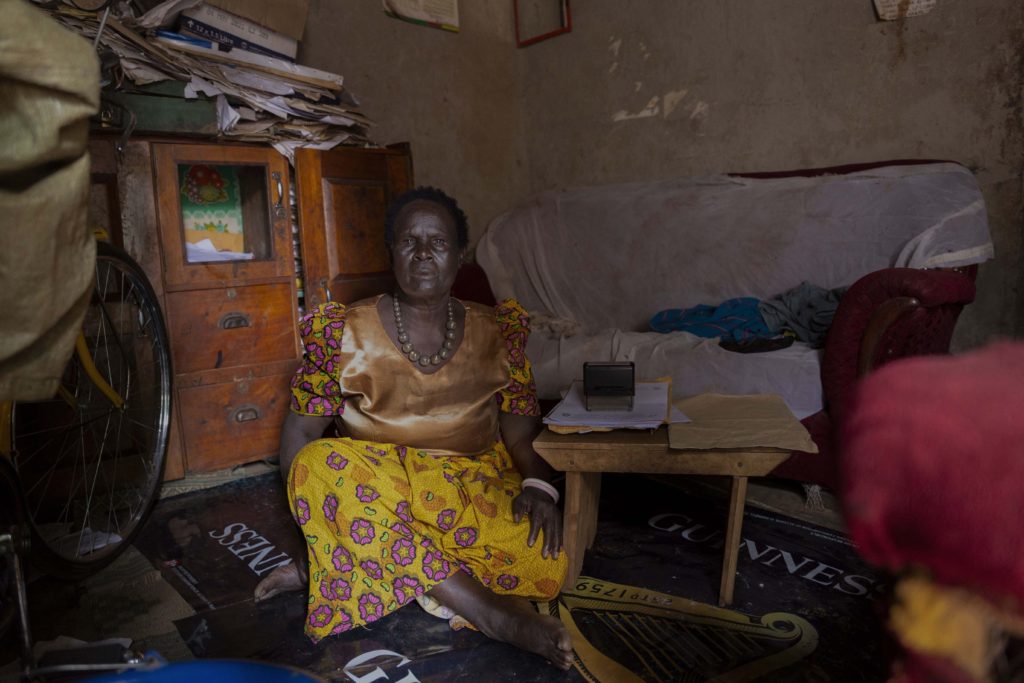
Florence Atto pauses for a picture in her current home away from home, in Kanyagoga A, Bar-dege layibi division, in Gulu town.
Kawunda Patrick Oyet, 35, Atto’s secretary for the office of the LC1, affirms that refugees are favoured over the locals. In his view, this differential treatment is what fuels arrogant and violent behaviour among them because they know that they are protected by the plethora of refugee agencies. On the other hand, locals with similar challenges resulting from displacement by war are left to fend for themselves with no support or counselling.
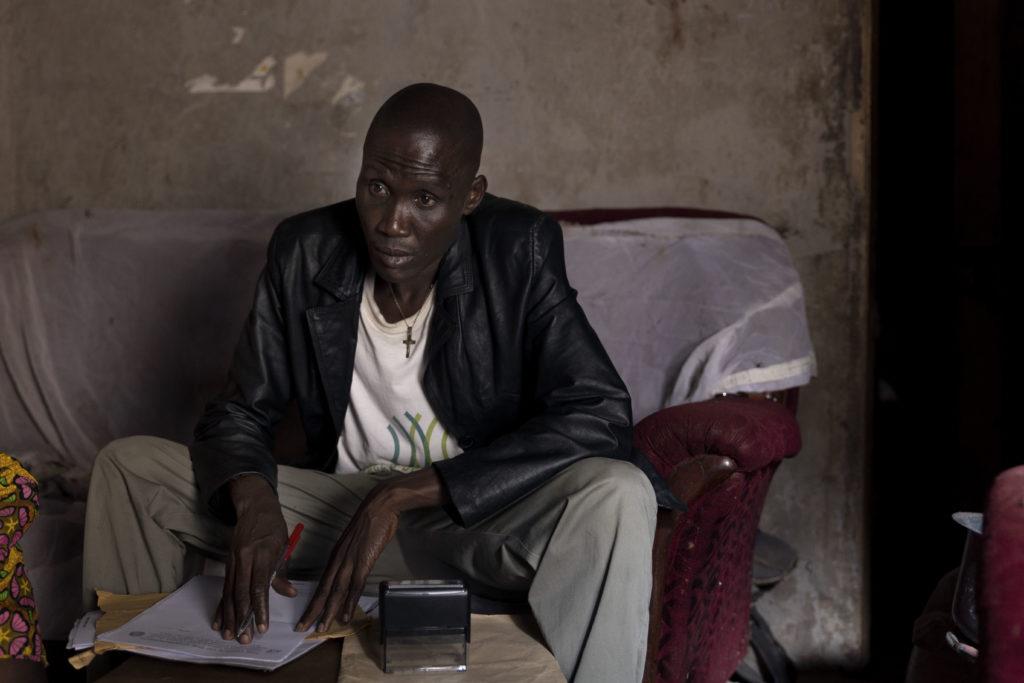
Kawunda Patrick Oyet, 35, Atto’s secretary in the office of the LC1 in Kanyagoga A, Bar-dege layibi division, in Gulu town.
“There is a general perception in the community that refugees are favoured but maybe it’s because they are organized in designated camps and for us, we were scattered all over the place during the war. So maybe it was hard for the organizations which offer support to reach us,” Kawunda opined in an interview with this publication.
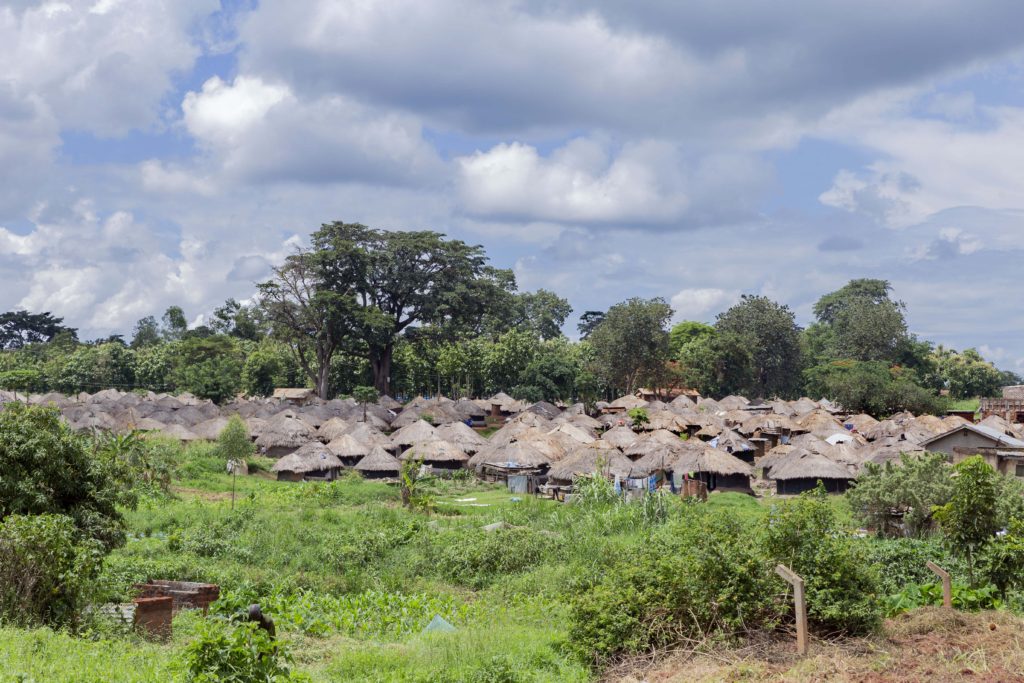
An overview of some of the shared homesteads by both refugees and former internally displaced people in Gulu.
In the center of Gulu city is the old bus park where former internally displaced persons in northern Uganda used to get sheltered at the height of the LRA insurgency. In an interview with the area LC1 of the bus park B sub-ward, Moses Nyeko, 42, he confirmed that many people, especially boys and girls used to come and seek refuge at the bus park during the night when the rebels attacked the villages and combed the streets for recruitment of new soldiers into their rebel camps.
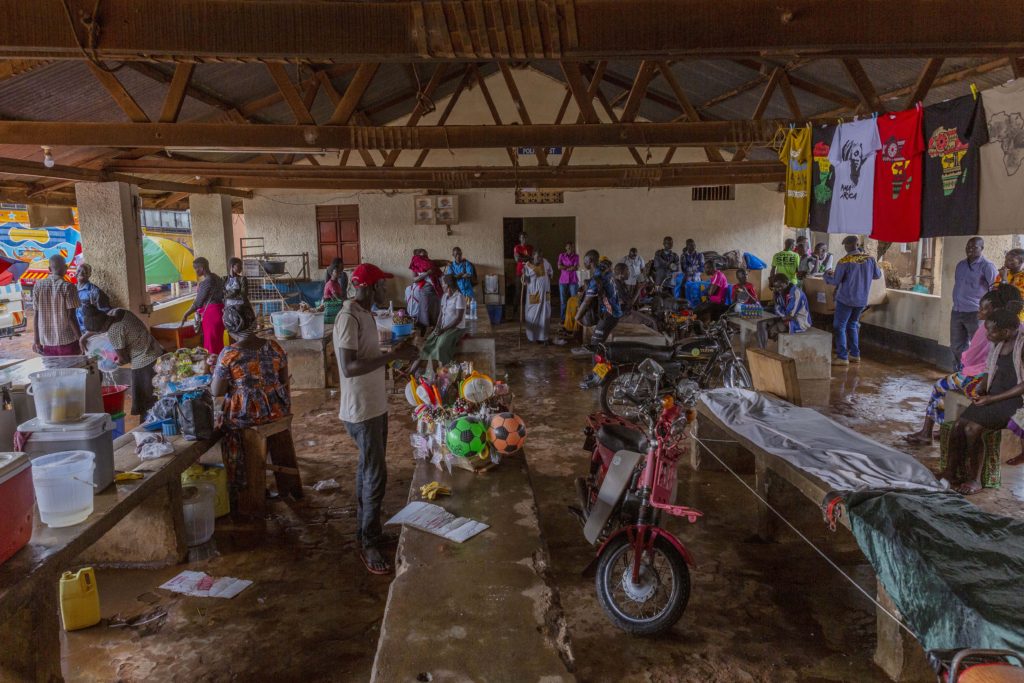
Inside the Gulu bus park B subward, where people slept during the night, in fear of the LRA rebels’ attacks on their homes.
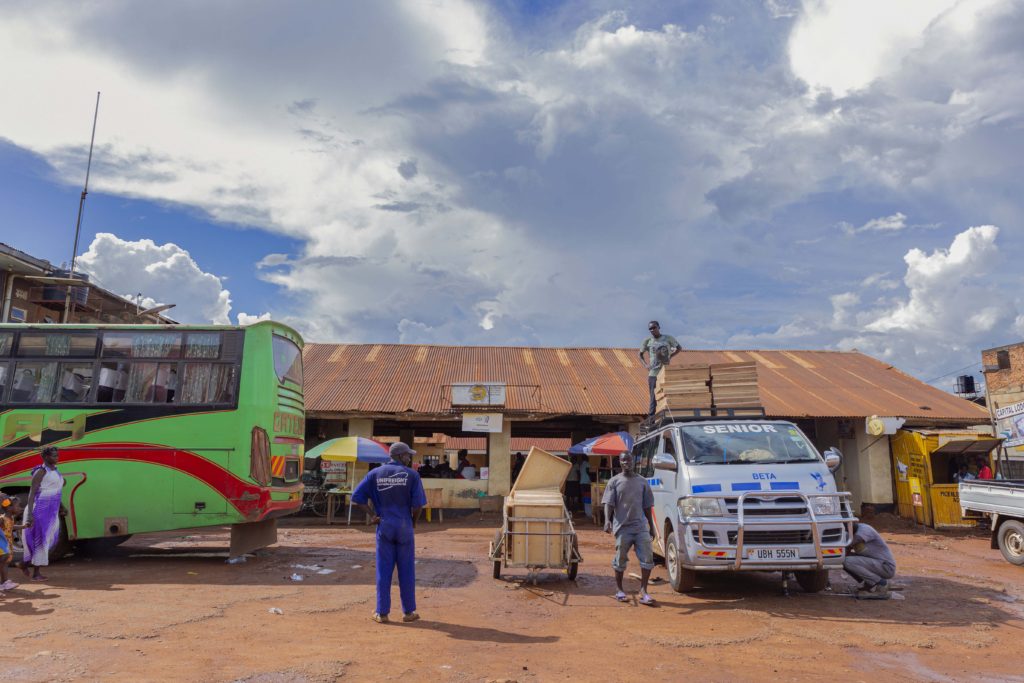
Outside the Gulu bus park B subward, where people used to come for refugee in the night, when rebels attacked.
Nyeko vividly recalls the nights that he slept at the shelter himself, during his secondary school days as a student. He shares that, “both women and men used to come and seek refuge here at the bus park, in the night. Later Amref Health Africa (an international non-government organisation) got concerned about the increasing sexual networks built from shared refugee spaces so they built a girls’ shelter behind the bus park in order to separate the girls from the boys during the night.” Currently, part of the shelter constructed by Amref Health Africa has been portioned and given to a local church and a restaurant.
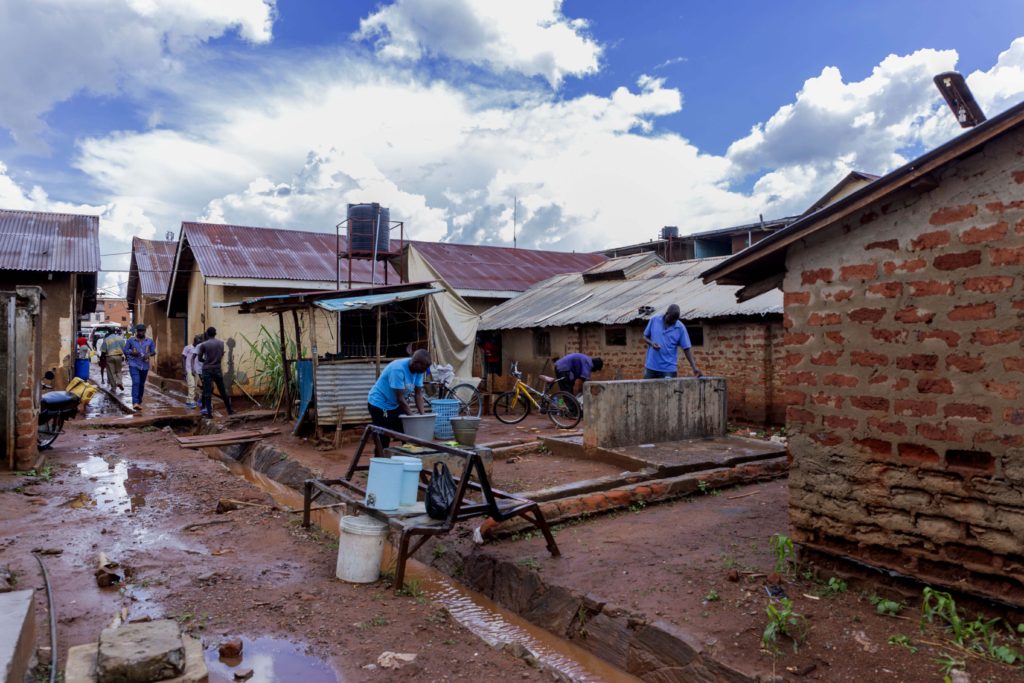
Current state of the brick wall structure (on the right) constructed by AMREF during the LRA war.
Nyeko, who lost his father during the rebellion observes that many survivors of that war are still battling both physical, psychological and socioeconomic challenges. For instance, up-to-date, Nyeko still has to battle painful regrets of having dropped out of school after his father was killed by the LRA. He can not help but wonder if his chances in life would have been different with the opportunity of an education. “I had the brains for academics you know, maybe I would be one of the biggest academicians in this country,” he told this writer.
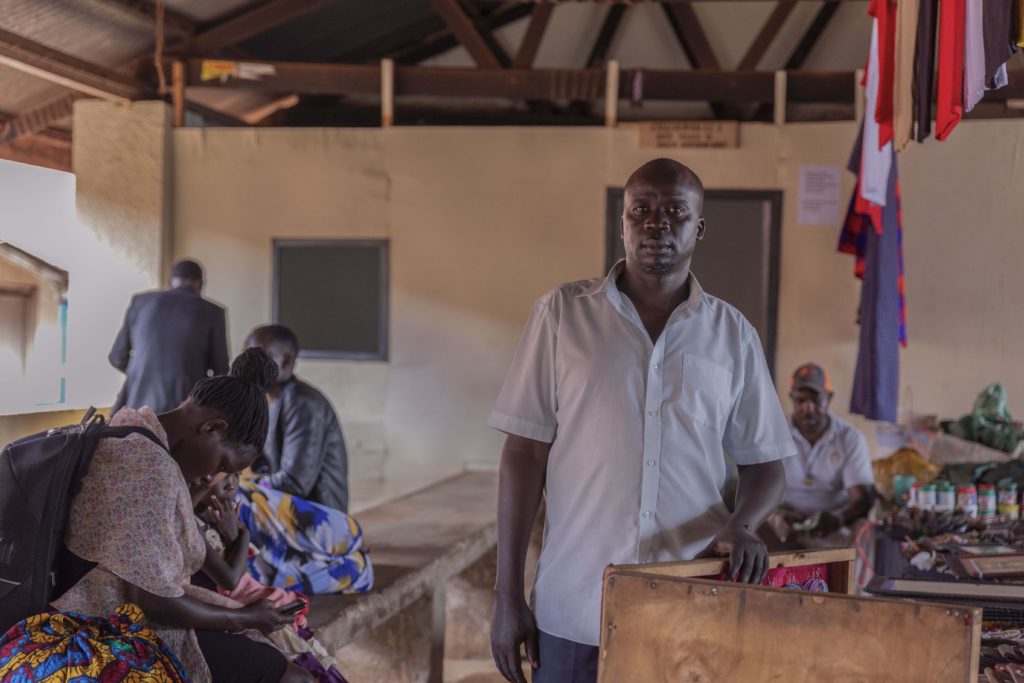
Moses Nyeko, 42, pauses for a photograph in Gulu bus park B subward, where he once sought refuge from LRA rebels as a student, and now volunteers as the LC1 chairperson of the same bus park area.
Nyeko’s father served as a police officer in the first Milton Obote government in 1971. When the NRA took over power in 1986, they came after the lives of Acholi men in vengeance. His father was arrested in 1987 and that was the last he heard of him. “I didn’t even get to see his dead body. I don’t know how he died.” Later in 1996, his two brothers were abducted by the LRA and like his father, he has no idea how they died and has never seen them again.
Nyeko added that the government of Uganda and NGOs should reconsider their support towards survivors of the LRA war in northern Uganda.
‘’We need affordable education for our children. We lost that opportunity because of the war, our children should at least be given the chance to study in compensation. I don’t receive a salary or make enough money to give my children a good education. My options were limited by the insurgency, but I believe the government can help us on the education issue of our children,’’ he says. Whereas government introduced the universal primary education and later universal secondary education programs as part of efforts to extend education access to citizens who could not afford to pay school fees for their children, the programs are constipated by their own set of challenges, including low completion rates of the education cycle and questions around quality.
Government of Uganda has since 2007 launched different initiatives such as Peace, Recovery and Development Plan [PRDP], Northern Uganda Social Action Fund [NUSAF], among others which were partly funded by the western donor community.
It is estimated that over three trillion shillings has been sunk in such programs to help the survivors of the War but reports on ground show that most of this money does not reach the targeted beneficiaries. It is lost to corruption and inefficiency
Formerly abducted women who served as wives to rebels face even greater challenges in their recovery journey. 43 year-old Florence Modo Arukude from Amuria district narrates that when the LRA attacked and abducted people in Teso sub-region, she fled to Mbale district leaving her family behind in Ajelek village, Amuria district. According to Modo, the LRA needed as much manpower as they could get their hands on. That demand consequently forced them to go further north east in the districts of Amuria and Soroti, abducting able-bodied women, men and children to join their rebel ranks.
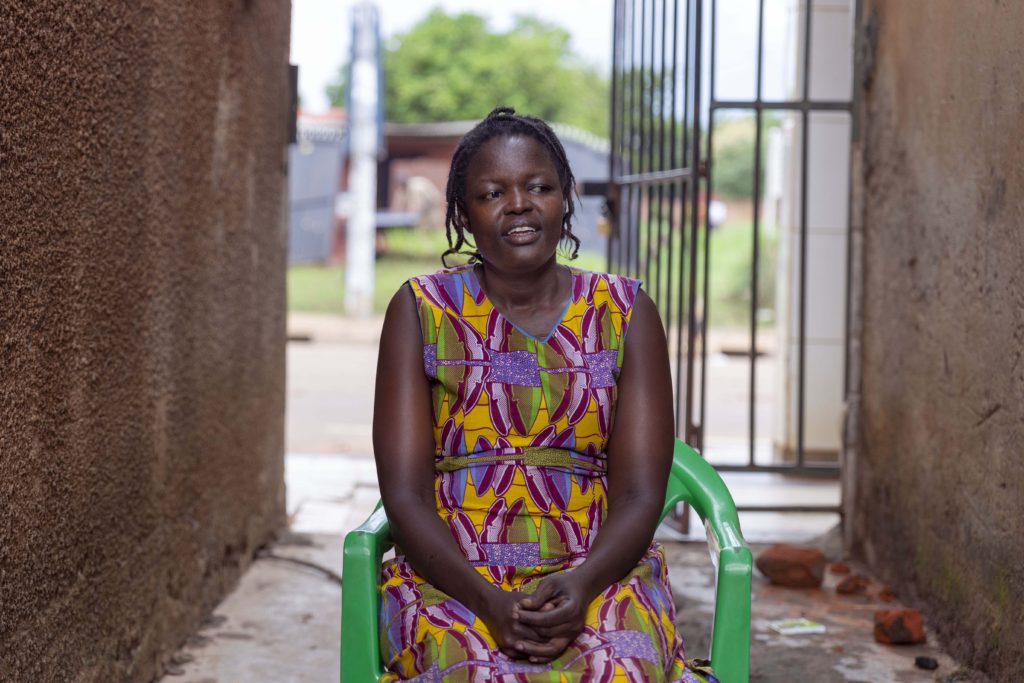
Florence Modo, 43, displaced from Ajelek village in Amuria sub-county, forced to serve as a wife to one of the LRA rebel group leaders. Modo lost four of her eleven children to the war. She is currently living as a single mother, practising and teaching tailoring to other formerly abducted women just like herself in Gulu town, under the Women Advocacy Network which was founded by Evelyn Amony, one of Joseph Kony’s former wives.
Teso sub-region, before the LRA expanded its tentacles there, had also been a theater of war with different rebel formations, including the Uganda People’s Army, all of which eventually fizzled out having entered a peace pact with the Museveni government or suffered outright military defeat, subjugation and submission. In 1989, Modo narrates, her entire village had been burnt down by rebels and looted by the Karimojong cattle rustlers. This forced the locals in that village to flee and they ended up in Onyutung village, located six miles from Ajelek, her home village. The natives of Onyuntung had also earlier been forced to leave for another unknown village. Here, Modo and her family depended on raw cassava from abandoned gardens in the village. In 1999, the soldiers seemed to have withdrawn from the East. So Modo and her family settled back home in Ajelek village, Amuria district. The moment was short lived as the LRA rebels returned in 2003 for more abductions, killings and forced recruitment of civilians into their camps.
‘’In 2004, I fled to Mbale district and stayed with Comboni Sisters, where I met Evelyn Amony, a former abductee and wife to LRA leader, Joseph Kony,’’ she told this writer. Modo is currently a tailoring trainer under Women Advocacy Network[WAN], a nonprofit organisation of formerly abducted women and girls founded by Evelyn Amony. She has since given up on the idea of marriage, having observed the challenges that former wives of rebels and their children have to face in contemporary society.
“You deal with poverty and trauma, and still have to suffer stigmatization. Your children are not fully accepted because they remind people of the rebels,” she shares, struggling to hold back tears.
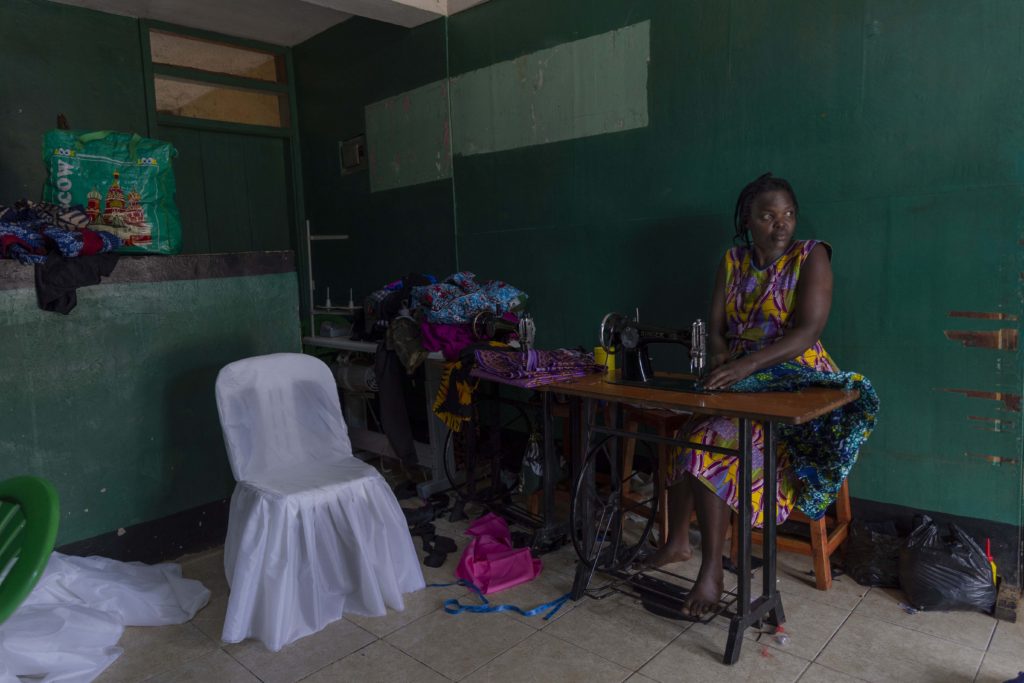
Florence Modo, 43 at the Women Advocacy Network (WAN) office in Gulu town where she is currently being trained in tailoring by Evelyn Amony, former wife of Joseph Kony.
Modo adds that she lost four of her 11 children to the war and was forced to be a wife to one of the LRA rebel leaders in the bush. Like other victims and survivors of the war, Modo insists that their biggest need is to go back to school and study. Modo believes that with a good education, they will be in a better position to support their communities, especially the children.
During an interview, Stella Lanam, 38, another survivor of the LRA war and former wife to one of the rebel group leaders confirmed that most of the formerly abducted and displaced women and girls who came back from captivity struggle with stigmatization.
‘’Living within the community is not easy because of stigma, they have rejected the children we came back with from the bush and many of my colleagues are living in a sorry state in the slums of this Gulu city,” says Lanam.
While still in captivity in 2004, Lanam recalls being threatened with death for herself and the children if she dared to escape. The mother of eight now invests her time and energy in creating safe spaces and helping formerly abducted girls and women in Gulu to move on and rebuild their lives. Lanam has little to no help with her organisation, War Victims and Children Networking.
The idea of starting this organisation was inspired by the frustration that resulted from the exploitation by numerous NGOs that sprung up in Gulu in the mid 2000s, in the name of helping war victims.
‘’Many whites came and took our stories and different NGOs used our stories to get funding but they never came back to say thank you or even support us,’’ she says.
Lanam was therefore forced to learn as much as possible through volunteering for those NGOs. It is the same knowledge that she later used to start War Victims and Children Networking in order to speak for the women with stories like her own. Her organisation has unsuccessfully petitioned parliament on several occasions about the same issue of supporting former internally displaced people in northern Uganda. She adds that it would be helpful if the government through the Office of the President came to the rescue of the formerly abducted and displaced women and girls of this impoverished region.
In Lanam’s words; “We don’t want much; we want justice and we want truth-telling. When they were taking our children, we had the same president, they have come back under the same president. We want our government to hear the suffering of the people in northern Uganda. We have gone to the Resident District Commissioner’s office and written letters as instructed, trying to get a meeting with the president but we have failed up to today. We wanted to meet the president and present our issues because we are not sure he knows our problems yet. People go to him and get money in the name of helping war victims in northern Uganda, but that support does not get to us, the people on ground.”
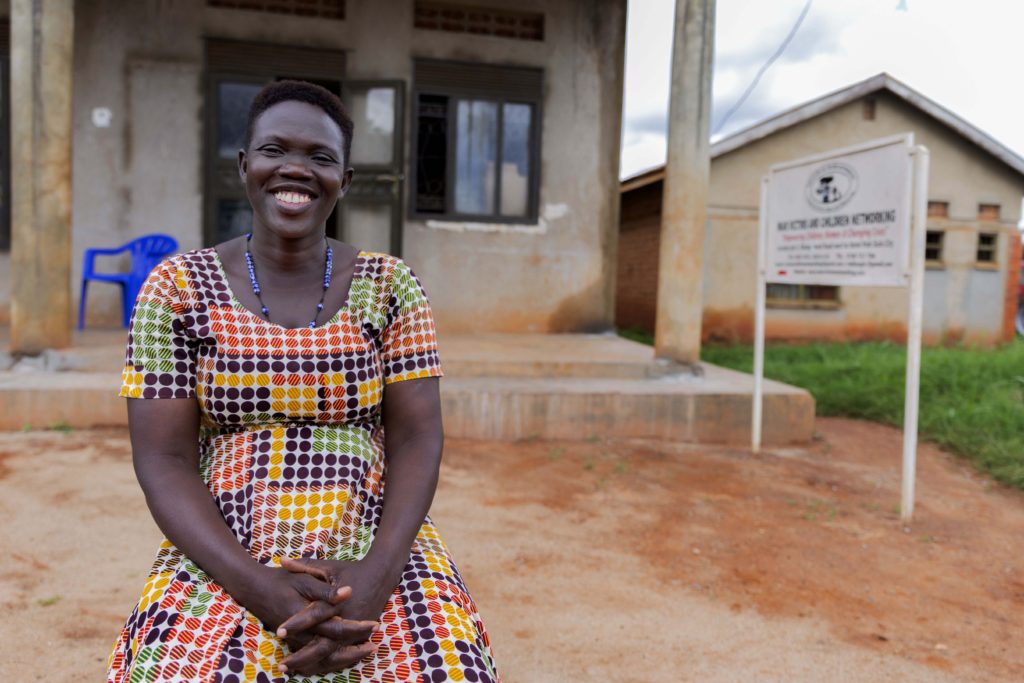
Stella Lanam, 38, founder of War Victims and Children Networking and former wife to one of the LRA rebel group leaders, now working to help other women and children who were also formerly abducted and used during the war by the LRA rebels.
Lanam also wishes that the government would also pass into law, the Transitional Justice Policy so that former victims of human injustices by the LRA rebels can be supported to get justice for crimes committed against them by the LRA rebels during the war.
On May 6, 2021, the International Criminal Court Trial Chamber IX, sentenced Dominic Ongwen to 25 years of imprisonment for 61 counts of crimes against humanity and war crimes allegedly committed after July 1, 2002 in northern Uganda. While this rings a bell of justice for many former victims of the same war in northern Uganda, it also causes pain to Ongwen’s family which has to mourn the loss of a child, abducted against his will and forcefully turned into a child soldier who was mandated to commit crime, without choice.
It is such ironies that make the case in northern Uganda one of much urgency in regard to psychological, emotional and mental health support among other crucial needs, especially if the community up north is expected to host the increasing number of refugees in Uganda.
While the United Nations and World Food Program have made some strides in incorporating the welfare of host communities in most of their refugee outreach programs, there is still a huge gap to be bridged.
It remains unclear when and how the government of Uganda will comprehensively address the issues of former victims of the LRA war in northern Uganda. However, the current and growing number of refugees in Uganda is estimated to be over 1.8 million, according to a 2018 report by the United Nations Office for the Coordination of Humanitarian Affairs. It should be noted that the LRA war in northern Uganda is a conflict that lasted for about 25 years and reportedly killed over 500,000 people and displaced over one million of them, majority of whom are now forming host communities for refugees in northern Uganda.
While the former internally displaced people in northern Uganda continue to help the government of Uganda in taking care of refugees, the question is, who is taking care of them? Who is listening and telling their stories? Who is attending to their call? Who is caring for the carer?
This article was written with support from the African Women in the Media, through the AWiM2020 Awards organised in partnership with the European Union Delegation to the African Union and the African Union. Its contents are the sole responsibility of the author and do not necessarily reflect the views of African Women in Media, the European Union and the African Union.


